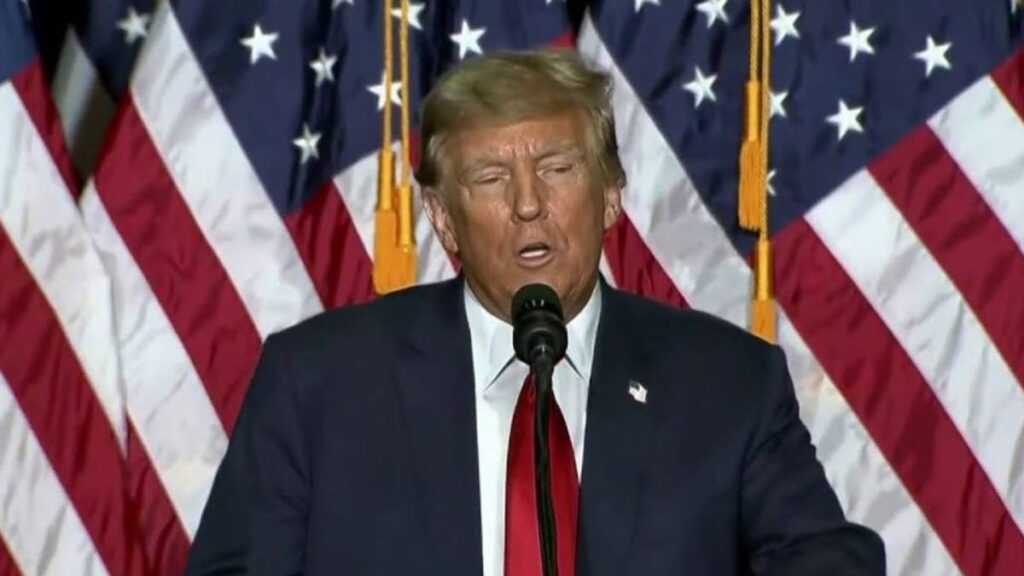
Former President Donald Trump argued before the Supreme Court on Tuesday. He contended that he should be granted absolute immunity for his efforts to overturn the 2020 election results.
These efforts culminated in the January 6 attack on the Capitol. He claimed a ruling against him would “incapacitate every future president.”
Trump’s legal team filed a brief outlining their legal arguments ahead of oral arguments in the case on April 25. They argued that Trump should enjoy absolute immunity for his official acts as president.
Trump’s lawyers wrote, “The president cannot function, and the presidency itself cannot retain its vital independence, if the president faces criminal prosecution for official acts once he leaves office.”
ALSO READ: Former Trump Adviser Peter Navarro Surrenders at Federal Prison
They added that if the court rejects his claim, it would “incapacitate every future president,” leaving them open to blackmail and extortion.
Prosecutors led by special counsel Jack Smith aim to swiftly rule against Trump. They hope to proceed with a criminal trial before November’s presidential election. Smith’s brief is due on April 8.
The court, with a 6-3 conservative majority, including three Trump appointees, will address the novel legal question. They will consider whether a former president is entitled to presidential immunity for “conduct alleged to involve official acts during his tenure in office.” Trump has previously lost that argument in two different courts.
In the new brief, his lawyers argue that the case focuses on the president’s unique powers under the Constitution. The Supreme Court has previously affirmed these powers in various contexts, although not in a criminal case.
POLL — Should Donald J. Trump Be Allowed to Run for Office?
They cite, among other things, a 1982 Supreme Court ruling in Nixon v. Fitzgerald. This ruling stated that presidents cannot be sued in a civil case for conduct within the “outer perimeter” of their authority.
The lawyers added that the justices should “neutralize one of the greatest threats to the president’s separate power, a bedrock of our republic, in our nation’s history.”
Trump’s team also left open the possibility that, if the court rejects his bid to dismiss the charges outright, it could remand the case to lower courts for further fact-finding on whether the charges concern official acts. This would further delay any trial.
Smith’s team previously argued against the existence of broad immunity preventing former presidents from being prosecuted for criminal acts committed in office. They contended that attempting to “use fraudulent means to thwart the transfer of power” shouldn’t be considered an official act, as stated in earlier court documents.
ALSO READ: Trump Campaign to Merge With RNC Ahead of Presidential Elections
Trump’s immunity claim stemmed from a four-count indictment in Washington. It included conspiracy charges to defraud the U.S. and to obstruct an official proceeding. Trump pleaded not guilty to these charges.
In December, U.S. District Judge Tanya Chutkan in Washington rejected Trump’s plea for immunity.
In February, a three-judge panel of the U.S. Court of Appeals for the District of Columbia Circuit upheld that decision, prompting Trump to seek relief from the Supreme Court.
You Might Also Like:
Court Orders Ariana Grande To Pay $1.25 Million in Spousal Support to Ex-Husband
Former Trump Adviser Peter Navarro Surrenders at Federal Prison
Court Sentences Two Mississippi Officers for Torture of Black Men
Trump Campaign to Merge With RNC Ahead of Presidential Elections
TikTok User Calls Out Store for Forceful Tipping Culture
